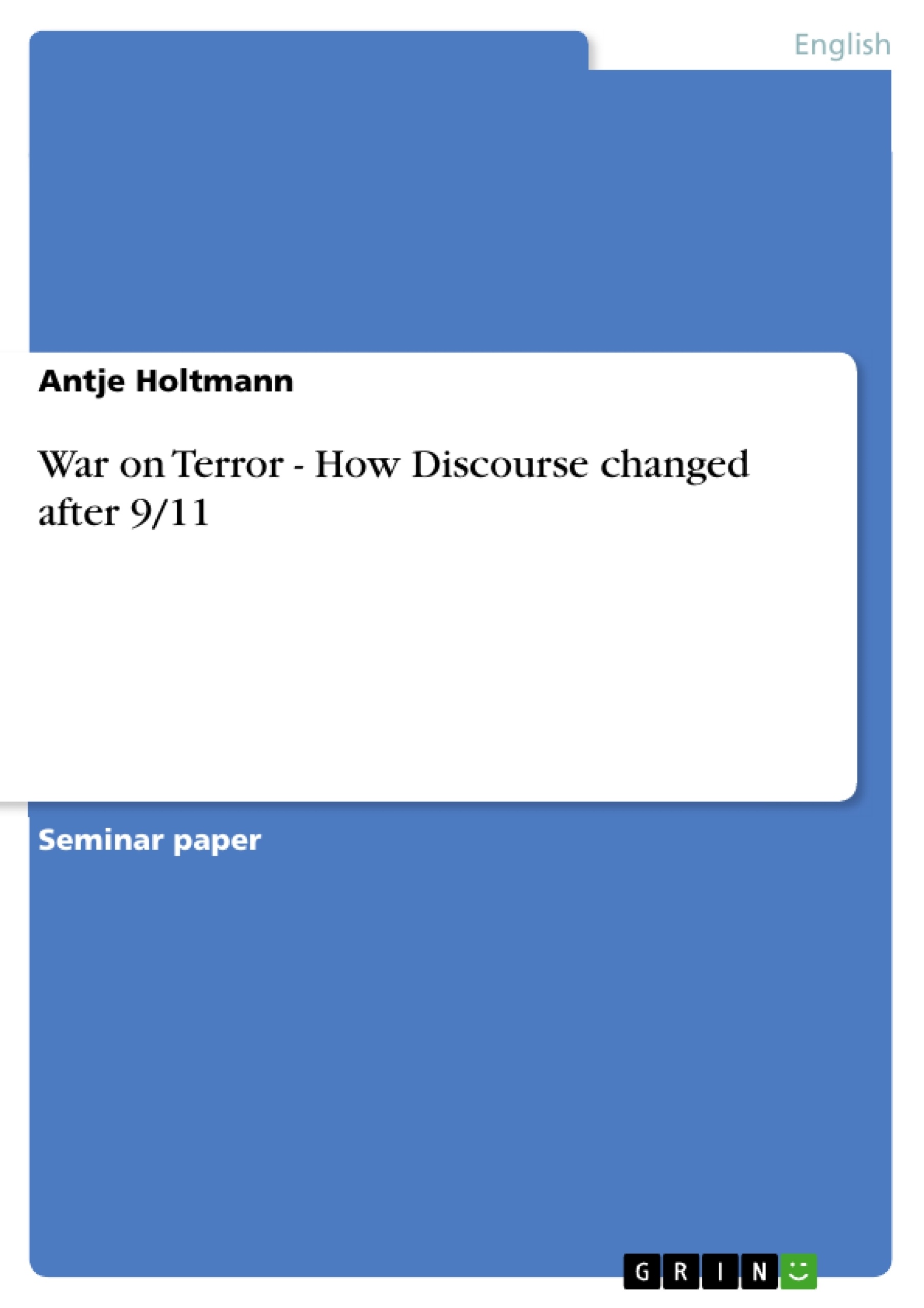[...] The discourse he (re)started, continued or resumed on “shaped public discussion and debate surrounding terrorism worldwide”. '9/11' has become a term everybody understands “in its conventional sense, as a realm of creative expression” as Daniel J. Sherman and Terry Nardin point out in their book Terror, Culture, Politics: Rethinking 9/11. Also Shana Kushner and Amy Gershkoff say that '9/11' has become an “ideograph in the sense that the historical event represents an attack on the beliefs, values, attitudes and “way of life” within the United States”. Not only in the English language '9/11' has become a “dictum” but in many others, too. In this term paper I want to take a closer look on the speech President Bush delivered on September 20, 2001 as State of the Union Address to a joint session of Congress. In my analysis I will go through the speech step by step in order to figure out the main points Bush is making. From there I want to continue with its effects and influence on the discourse about 'war on terror'. I am mainly referring to Norman Fairclough and his interpretations in Language and Globalization and also to Kevin
Coe et al. and their study No Shades of Gray. With the help of these publications I want to emphasize the impact and the aftermath of Bush's discourse as well in media as in society.
War on Terror - How Discourse changed after 9/11

Term Paper , 2010 , 11 Pages , Grade: 1,7
Autor:in: Antje Holtmann (Author)
English Language and Literature Studies - Other
Excerpt & Details Look inside the ebook

